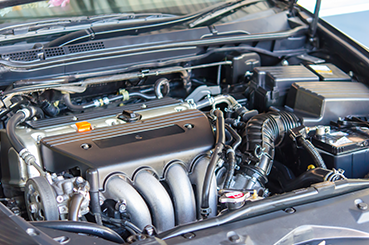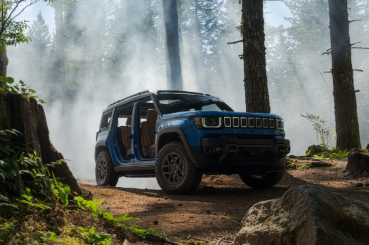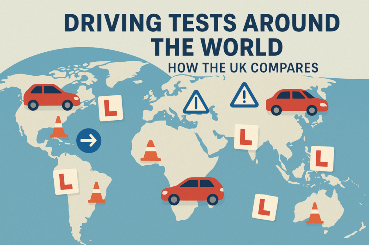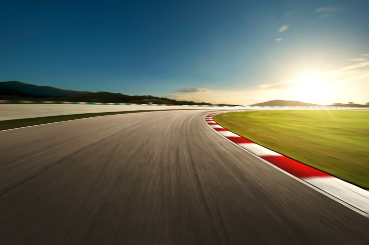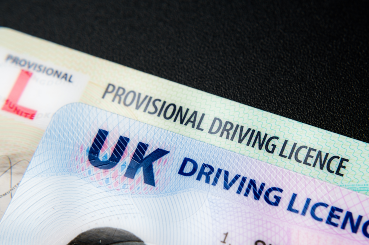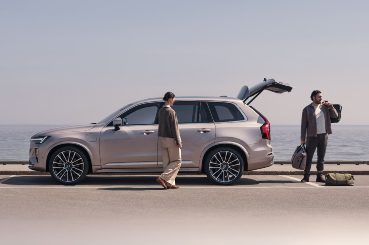Vauxhall’s racing pedigree is a deep-rooted chapter of British motorsport history. From dominating touring car circuits to pushing the limits with high-performance road cars, Vauxhall’s motorsport journey has left an indelible mark on automotive culture.
In this blog, we’ll take a deep dive into Vauxhall’s rich heritage of racing, covering decades of sporting excellence, touring championships, the rise of the VXR brand, and a glimpse into the electrified future of Vauxhall racing. Whether you’re a motorsport enthusiast or a curious Vauxhall fan, this is your ultimate guide to the brand’s journey on the track and beyond.
Vauxhall’s Touring Heritage
Vauxhall’s prominence in the touring car scene is most notably marked by its long-standing involvement in the British Touring Car Championship (BTCC). Over the years, Vauxhall has fielded some of the most iconic touring cars, achieving numerous victories and earning a place as one of the series’ most successful manufacturers.
In the early 1990s, the Cavalier GSi was a formidable contender, with drivers like John Cleland capturing the championship in 1995. This era established Vauxhall as a force to be reckoned with, combining engineering finesse with fierce competitive spirit. As the BTCC evolved, so did Vauxhall’s line-up.
The late ’90s and early 2000s saw the arrival of the Astra Coupe, which became synonymous with Vauxhall’s dominance. Between 2001 and 2004, the Astra Coupe secured four consecutive manufacturers’ titles and contributed to multiple driver championships.
During their BTCC tenure, Vauxhall racked up an impressive tally of wins, podiums, and fastest laps. In total, the brand boasts over 100 race wins and dozens of fastest laps across its BTCC history. These accolades not only demonstrated the performance capabilities of Vauxhall vehicles but also cemented the brand’s appeal among performance enthusiasts across the UK.
Vauxhall’s Sporting Heritage Timeline

1910s–1920s: The Beginning
Vauxhall’s involvement in motorsport began before World War I, with the legendary Prince Henry and 30-98 models.
These cars competed in reliability trials and hill climbs, quickly earning a reputation for durability and sporting prowess.
The 30-98, in particular, is considered Britain’s first true sports car, with it being Britain’s first catalogued 100mpg production car.
1930s–1940s: Post-War Pause
Although the 1930s brought global recognition, racing activity slowed with the onset of World War II. Vauxhall’s focus shifted to supporting the war effort. Post-war, the company resumed civilian production, but motorsport activities remained limited during this period.
1950s–1960s: Motorsport Reignites
Vauxhall began rebuilding its performance image. The introduction of the VX 4/90 brought rallying success during this era, competing in events such as the RAC Rally. Though still finding its footing, the brand showed promising signs in grassroots motorsport across the UK.
1970s–1980s: A New Era of Performance
The Chevette HS and HSR models marked Vauxhall’s return to form in rallying.
The Chevette HSR was particularly successful in the British Rally Championship, with drivers like Pentti Airikkala making headlines.
During this era, Vauxhall also introduced powerful road cars that hinted at its motorsport roots, such as the Magnum and Firenza HPF.

1990s–2000s: BTCC Glory
This period saw Vauxhall reach its peak in competitive racing. The Cavalier and Astra dominated the BTCC, supported by manufacturer-backed teams. Their on-track success contributed to the growing prestige of Vauxhall performance cars on the road.
2010s: VXR and Beyond
The 2010s focused on translating motorsport expertise into road-going performance. With the VXR sub-brand gaining popularity, Vauxhall continued to participate in motorsport-adjacent events while preparing for a shift towards sustainable innovation.
Additional Sporting Highlights
Beyond rallying and touring, Vauxhall has also dabbled in endurance racing and grassroots motorsport across the UK. From club-level racing with tuned Corsa and Nova models, to the development of track-ready variants that enthusiasts still race today, Vauxhall’s sporting DNA is woven into the fabric of British motorsport culture.

Vauxhall VXR Explained
The VXR badge represents Vauxhall’s commitment to high-performance vehicles inspired by its racing success. Launched in the early 2000s, VXR was designed to bring motorsport excitement to everyday driving. The brand’s mission was clear: deliver performance, precision, and passion in a road-legal package.
These vehicles were engineered with enhancements to power, suspension, and aerodynamics—often influenced by the learnings from BTCC. Popular among younger drivers and performance fans alike, VXR models offered affordability without sacrificing capability.
Two Most Popular VXR Models
Astra VXR
Arguably the most iconic VXR, the Astra VXR featured a turbocharged 2.0-litre engine producing over 275bhp. It was praised for its sharp handling, aggressive design, and straight-line speed—making it a favourite among hot hatch enthusiasts.
Corsa VXR
Compact yet potent, the Corsa VXR offered dynamic performance in a small package. Its turbocharged engine and sporty styling made it a popular choice for those seeking affordable thrills with motorsport pedigree.
Vauxhall’s Racing Future
As Vauxhall looks to the future, its focus has shifted towards innovation, electrification, and sustainable motorsport. The Corsa-e Rally, introduced in recent years, marks the brand’s first all-electric rally car—demonstrating a bold new direction in performance development.

This electric rally car showcases Vauxhall’s commitment to eco-conscious racing without compromising excitement.
Built on the success of its internal combustion predecessors, the Corsa-e Rally is not only a technological statement but also a symbol of Vauxhall’s intent to remain at the forefront of motorsport evolution.
Vauxhall continues to invest in electric vehicle development, with future models expected to blend performance heritage with next-generation sustainability.
As motorsport adapts to modern challenges, Vauxhall is ready to race into the next era—quietly, cleanly, and with the same passion that fuelled its victories of the past.
